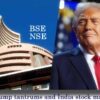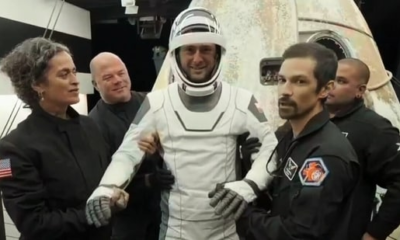Jaishankar to Europe: India Seeks Partners, Not Preachers
India’s External Affairs Minister, Dr. S. Jaishankar, delivered a sharp message to Europe during his address at the Arctic Circle India Forum, underscoring that India seeks equal partnerships rooted in mutual interest—not condescending sermons from nations that often fail to apply their own principles at home.
Answering a question about India’s expectations from Europe, Dr. Jaishankar said that the continent “has to get beyond preaching” and focus instead on shared goals. He emphasized that India is not looking for lectures from those who do not “practice what they preach.” His comments, perceived as a direct dig at certain European countries, highlight India’s growing confidence on the global stage and its desire to reshape relationships based on equality rather than legacy power dynamics.
“When we look out at the world, we look for partners; we do not look for preachers—particularly preachers who do not practice at home and preach abroad,” Jaishankar said. “I think some of Europe is still struggling with that problem. Some of it has changed,” he added, suggesting that certain countries are slowly adapting, while others remain entrenched in outdated mindsets.
Jaishankar stressed that any sustainable India-Europe relationship must be based on sensitivity, understanding, and a mutuality of interests. “If we are to develop a partnership, there has to be some understanding, there has to be some sensitivity, there has to be a mutuality of interest and a realization of how the world works,” he stated. He acknowledged that Europe has undergone a “reality check” in recent years, but noted that progress toward a more balanced relationship remains uneven across the continent.
His remarks come at a time of increasing global scrutiny of Western double standards, particularly in how European nations have responded differently to international conflicts—such as the Ukraine-Russia war and India-Pakistan tensions. The perception of selective outrage and moral grandstanding has sparked criticism from leaders and analysts across the Global South.
In the same address, Jaishankar reiterated India’s strategic approach to both Russia and the United States, framing it as one rooted in “realism” rather than ideology. He referred to India’s longstanding energy and defense ties with Russia, describing the relationship as one of “complementarity” between a resource-rich provider and a resource-hungry consumer.
“There is such an important fit and complementarity between the two countries. Where Russia is concerned, we have always taken a view that there is a Russia realism that we have advocated,” he said. He also criticized Western efforts to resolve the Russia-Ukraine conflict without involving Russia, calling such approaches unrealistic.
Simultaneously, Jaishankar endorsed a similar pragmatic approach toward the United States, saying, “Just like I am an advocate of Russian realism, I am also an advocate of American realism.” He argued that focusing on mutual interests rather than ideological differences offers the best path forward for engaging with the current U.S. administration.
In essence, Jaishankar’s remarks reflect India’s evolving foreign policy posture—non-aligned but assertive, independent but pragmatic. By calling out perceived Western hypocrisy and emphasizing mutual respect and realistic engagement, India is signaling a clear message: it expects to be treated as an equal on the world stage.




























